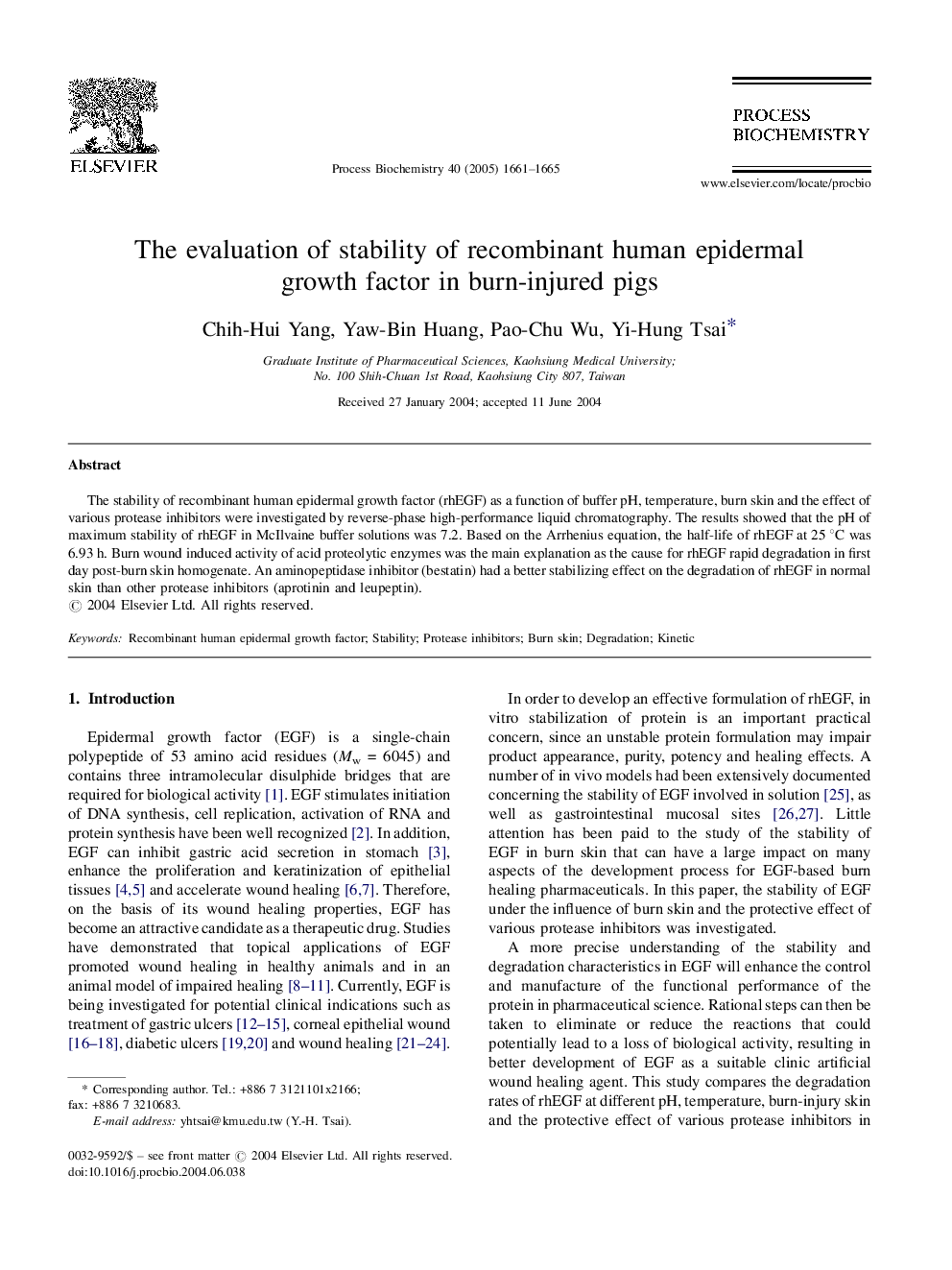| Article ID | Journal | Published Year | Pages | File Type |
|---|---|---|---|---|
| 10236387 | Process Biochemistry | 2005 | 5 Pages |
Abstract
The stability of recombinant human epidermal growth factor (rhEGF) as a function of buffer pH, temperature, burn skin and the effect of various protease inhibitors were investigated by reverse-phase high-performance liquid chromatography. The results showed that the pH of maximum stability of rhEGF in McIlvaine buffer solutions was 7.2. Based on the Arrhenius equation, the half-life of rhEGF at 25 °C was 6.93 h. Burn wound induced activity of acid proteolytic enzymes was the main explanation as the cause for rhEGF rapid degradation in first day post-burn skin homogenate. An aminopeptidase inhibitor (bestatin) had a better stabilizing effect on the degradation of rhEGF in normal skin than other protease inhibitors (aprotinin and leupeptin).
Related Topics
Physical Sciences and Engineering
Chemical Engineering
Bioengineering
Authors
Chih-Hui Yang, Yaw-Bin Huang, Pao-Chu Wu, Yi-Hung Tsai,
